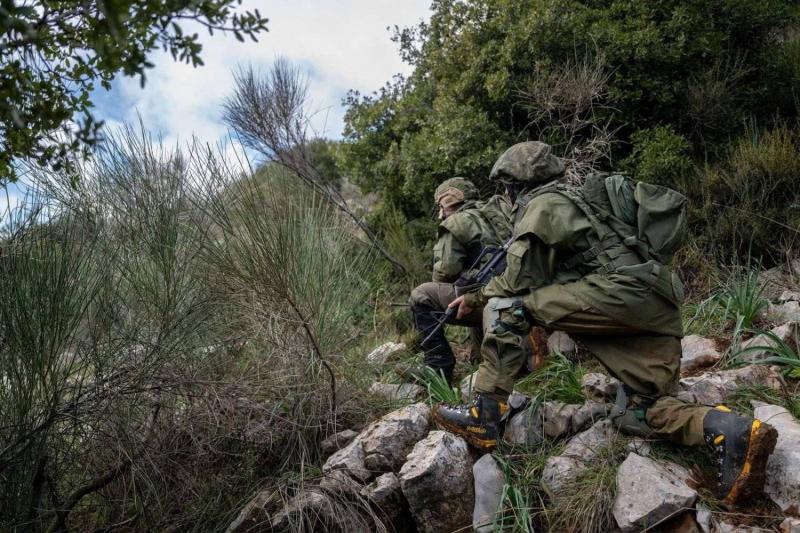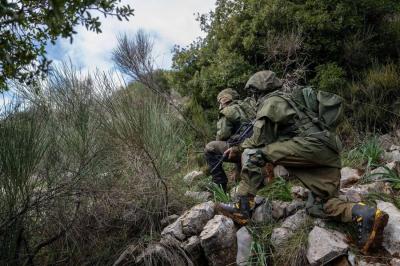The Hebrew newspaper "Haaretz," in its Arabic edition, published an analytical article asserting that an Israeli war with Hezbollah in Lebanon would lead to a total defeat. The article stated, "The decision-makers had no real intentions to enter into a ground war in Lebanon. They threatened with arrogant statements like 'Nasrallah will make the mistake of his life,' but it was clear to Benjamin Netanyahu, Yoav Galant, and the military leadership that such a confrontation would be futile, as it would not achieve any results that could not be accomplished through diplomatic channels and that the cost would be exorbitant and beyond what could be borne."
The newspaper adds, "In recent weeks, the situation has changed slightly, and the humiliation caused by Hezbollah has become very heavy. Disruptions to daily life in the north, the entry of drones, and the exposure of Israel's weak underbelly have made it extremely difficult for Netanyahu to contain all of this. Thus, a 'cheap' war was suddenly born. It is no longer about returning Lebanon to the Stone Age or occupying land up to the Litani River but rather about a limited ground maneuver over a few kilometers primarily aimed at telling the residents of northern Israel that the threat of a ground infiltration similar to that which occurred on October 7 has been removed, and you can return to your homes. Even the arrangement agreement that became practically successful and could no longer be implemented was originally conditioned on a settlement in the south, which does not seem to be on the horizon. The exchange deal for the return of hostages has become impossible, and it appears we are heading toward a war of attrition in the Gaza Strip, with an unrealistic hope of capturing Yahya Sinwar one day, perhaps then we could announce that we have won."
The paper notes that these factors may make a ground operation in the north possible for the first time, and it would be a bad decision; the situation is severe and humiliating, and such a move might complicate and exacerbate it further, making it hard to see how any benefit could be achieved from it.
Israeli concerns about capacity are explained in "Haaretz," stating that the Israeli military spokesperson will announce the valor of fighters in assassinating militants and detonating underground fortified shelters, but the military will not remain in the area after the operation concludes. Once the army withdraws, it will not genuinely be able to claim that the threat of ground infiltration has been entirely and permanently removed, and both sides will inevitably have to return to the settlement agreement that was on the table.
According to the Hebrew newspaper, "There is a more problematic issue regarding strikes that will affect the Israeli home front, which could cause painful damage. However, they could also turn the small ground maneuver into a full-scale war, and Israel would not be able to respond more forcefully to power outages and injuries that will affect strategic facilities. It has become apparent that this response is now trapped by an almost impossible challenge, as Israeli military leaders have always threatened that in a war with Hezbollah, Lebanon's electrical, water, and infrastructure facilities would be destroyed.
The newspaper emphasizes that Lebanon is Hezbollah, and Hezbollah is Lebanon. It posed a series of questions, stating, "In our current situation today, amidst calls to issue arrest warrants in The Hague, an unprecedented political tsunami, and international isolation, will Israel be able to destroy the infrastructure facilities in this bankrupt state that the Western world is desperately trying to keep alive? And if we do that despite everything, what will we claim against Hezbollah's strikes on our strategic facilities, which will among other things transform us into a country that poses a risk to foreign investments in the coming years?"
It indicates, in this context, that it is very sad that Yair Lapid and Benny Gantz do not dare to publicly oppose this maneuver.
The article concludes with the assertion, "What can really be done in the north? There are no good options, but this is the least bad option among them: Israel should withdraw unilaterally from the Gaza Strip, while declaring that the war against Hamas continues, retaining our freedom to act and move and return there whenever we see fit, reaching an agreement on arrangements in the north, and seriously intensifying defensive measures around settlements and along the two border lines in the north and south. This is far from 'absolute victory,' but at least it is not 'absolute defeat,' which is the direction we are currently heading."




